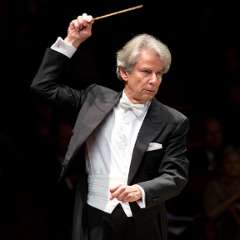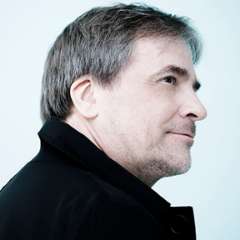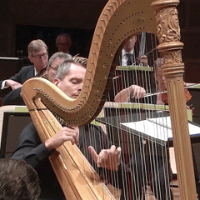| Year of birth | 1770 |
| Year of death | 1827 |
| Nationality | Germany |
| Period | Romantic |
German composer whose forceful creative personality has made him perhaps the most universally admired and recognised figure in classical music history.
Born the son of a musician at the Electoral court in Bonn, he showed early talent as a pianist and composer, and after an encounter with Haydn in 1792 was invited to study with him in Vienna. There he made his name at first as a virtuoso pianist noted for his bold improvisations, and by the end of the century had composed two piano concertos, and several piano sonatas and chamber works involving piano. His First Symphony appeared in 1800, and in 1801 he published his first set of six string quartets (Op.18).
It was around this time that his progress as a composer was threatened by hearing problems, and although it would be more than a decade before he suffered total deafness, the crisis reached an emotional peak in 1802 when he expressed in a letter known as the ‘Heiligenstadt Testament’ his thoughts of suicide. Having decided to carry on, his personal victory over adversity was seemingly mapped in the outline of his Third Symphony of 1804 (the Eroica, or ‘Heroic’), a powerful journey through darkness to light that would be undertaken again in works such as the ‘Appassionata’ Piano Sonata (1805), the opera Leonore (1806, revised as Fidelio in 1814), and the Fifth Symphony (1808).
Yet Beethoven’s music was not always about heroic struggle. It could show bluff humour (as in the Eighth Symphony or the Piano Sonata, Op. 31 No. 3), calm serenity (the slow movement of the ‘Hammerklavier’ Piano Sonata, Op. 106), exuberant energy (the finale of the String Quartet, Op. 59 No. 3) or the warm affection of friendship (the Piano Sonata.Op. 81a, ‘Les Adieux’). The Sixth Symphony (the ‘Pastoral’) expresses a Romantic love of nature, while works such as Fidelio and the Ninth Symphony (1824) articulate a burning belief in personal freedom and brotherhood.
Beethoven’s deafness made him increasingly isolated in his last decade, and his work became more introspective, first in his last three piano sonatas (Opp. 109-111), and then in his last five string quartets (Opp. 127, 130, 131, 132 and 135), in which we encounter a new composure, a sense of being at peace and achieving an understanding of the nature of things reflected in music of cosmic stillness and depth. Beethoven’s achievements as a composer include taking the High Classical style inherited from his two great predecessors, Mozart and Haydn, and stretching it to new formal limits, in instrumental music especially. But it is his expressive ambition, and his triumphant realisation of it, that have won him a place among the greatest of all creative artists.
Profile © Lindsay Kemp 2025






